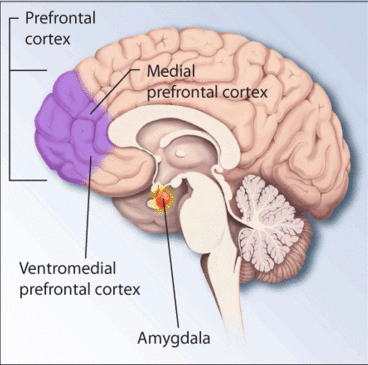Post-traumatic Stress Disorder (PTSD)
Post-traumatic stress disorder (PTSD) is a mental and behavioural disorder that emerges following exposure to a traumatic event, such as sexual assault, warfare, traffic collisions, child abuse, or other threats to a person's life or well-being.
Symptoms include distressing thoughts, feelings, or dreams related to the traumatic event, avoidance of trauma-related cues, changes in thinking and mood, and heightened fight-or-flight responses. These symptoms persist for more than a month and significantly impact daily functioning.
Signs & Symptoms

PTSD symptoms generally appear within three months of the traumatic event but can sometimes take years to manifest. Individuals with PTSD often relive the traumatic event through intrusive memories, flashbacks, and nightmares. They may avoid trauma-related thoughts and emotions or discussions about the event, sometimes experiencing dissociative amnesia. Distress must persist for longer than one month for a diagnosis of PTSD.
Co-occurring conditions such as depression, anxiety, and substance use disorders are common, with more than 50% of those with PTSD presenting comorbid conditions.
Risk Factors

Certain populations are more susceptible to PTSD, including combat military personnel, survivors of natural disasters, violent crime victims, and individuals in high-risk professions such as emergency services. Women, particularly those exposed to interpersonal violence and sexual assault, are more likely to develop PTSD than men. Other risk factors include childhood trauma, exposure to severe or prolonged trauma, and lack of social support.
Diagnosis
PTSD diagnosis can be challenging due to the subjective nature of symptoms, potential for over- or under-reporting, and symptom overlap with other mental disorders. Screening tools such as the PTSD Checklist for DSM-5 (PCL-5) and the Primary Care PTSD Screen for DSM-5 (PC-PTSD-5) are used to identify potential cases. Formal diagnosis typically involves clinician-administered interviews and assessment instruments, including the Clinician-Administered PTSD Scale for DSM-5 (CAPS-5).
Neuroanatomy

Neuroimaging studies have found that PTSD is associated with reduced brain volumes, particularly in the hippocampus, insula cortex, and anterior cingulate. PTSD may also involve abnormal activity in the amygdala, hippocampus, and prefrontal cortex, affecting emotional regulation and memory processing.
Treatment
The primary treatments for PTSD include psychotherapy and medication. Cognitive-behavioural therapies (CBT), such as prolonged exposure therapy and cognitive processing therapy, have strong evidence of effectiveness. Eye movement desensitisation and reprocessing (EMDR) is also used, combining exposure therapy with guided eye movements to process traumatic memories.
Cognitive Behavioural Therapy (CBT)

CBT aims to change negative thought patterns and behaviours associated with PTSD. Exposure therapy, a form of CBT, involves re-experiencing traumatic memories in a controlled environment to facilitate emotional processing. Studies have shown that CBT can significantly reduce PTSD symptoms and improve overall functioning.
Medication
Selective serotonin reuptake inhibitors (SSRIs) and serotonin-norepinephrine reuptake inhibitors (SNRIs) are commonly used to treat PTSD, with medications like sertraline, fluoxetine, paroxetine, and venlafaxine showing small to modest benefits. Benzodiazepines are generally not recommended due to potential adverse effects and risk of dependency. Other medications, such as prazosin, are used to address specific symptoms like nightmares.
Other Interventions
Physical activity, play therapy for children, and military programmes are additional interventions that can help manage PTSD symptoms. The U.S. National Centre for PTSD recommends moderate exercise as a way to improve psychological and physical health. Play therapy can help children process traumatic experiences through structured play. Military programmes such as the Battlemind programme and Warrior Care Network provide support for veterans transitioning back to civilian life.

Self-assessment MCQs (single best answer)
What is the primary cause of post-traumatic stress disorder (PTSD)?
Which of the following is NOT a symptom of PTSD?
How long must PTSD symptoms persist for a diagnosis to be made?
Which population is more susceptible to developing PTSD?
Which screening tool is commonly used to identify potential PTSD cases?
What type of therapy is known for combining exposure therapy with guided eye movements to process traumatic memories?
Which medication class is commonly used to treat PTSD?
Which area of the brain is NOT typically associated with PTSD according to neuroimaging studies?
Which of the following is generally NOT recommended for treating PTSD due to potential adverse effects and risk of dependency?
Which of the following interventions is recommended by the U.S. National Centre for PTSD to improve psychological and physical health?
Dentaljuce
Dentaljuce provides Enhanced Continuing Professional Development (CPD) with GDC-approved Certificates for dental professionals worldwide.
Founded in 2009 by the award-winning Masters team from the School of Dentistry at the University of Birmingham, Dentaljuce has established itself as the leading platform for online CPD.
With over 100 high-quality online courses available for a single annual membership fee, Dentaljuce offers comprehensive e-learning designed for busy dental professionals.
The courses cover a complete range of topics, from clinical skills to patient communication, and are suitable for dentists, nurses, hygienists, therapists, students, and practice managers.
Dentaljuce features Dr. Aiden, a dentally trained AI-powered personal tutor available 24/7 to assist with queries and provide guidance through complex topics, enhancing the learning experience.
Check out our range of courses, or sign up now!


